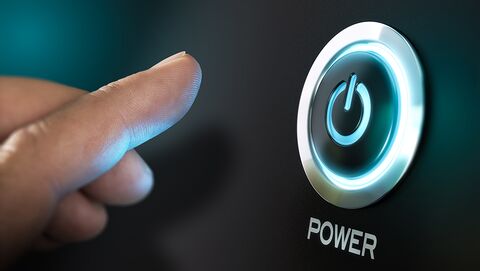Digital detoxing for the truly addicted
We’re “addicted”. We wake up in the morning and take a hit. We use it to catch the tube to work. It makes us slump in our beds and stare up for hours on end. Even our mums and dads are hooked (in between comments about how things were better in their day). Riding off the same neurochemicals that cocaine invigorates, we have become digital technology addicts.
It is now widely known that people in the 21st century rely on integrated, mobile technology to perform most basic tasks, including leisure activities. This reliance has prompted Apple investors to get involved in scaling back digital technology use among children. Apple CEO Tim Cook extended the scope of Apple’s concern when he expressed his dissatisfaction with social media.
Growing in tandem with this acknowledgement of worldwide addiction is the term ‘digital detox’. I’m not sure what the toxins are but perhaps the name stuck because it’s catchy.
What’s a digital detox?
The digital detox speaks for itself: spend a certain amount of time freeing your mind-body from digital (de)vices such as computers, mobile phones, tablets, smart TVs, music players and voice search hubs. (You might even want to switch off your digital watch.)
Preposterous no? Try catching a London bus without a phone when you gave up your Oyster card for Apple/Android Pay, or try tracking your gas bill without the N Power app. Worst of all, imagine getting home after a long day at the docks and a voice in your head chirps, “No Netflix, ya junkie.”
It turns out that one-third of online Brits have attempted the detox. The benefits of a digital detox include more time for other tasks, greater concentration on your surroundings and better sleep. The cost: you just aren’t connected to most aspects of your life.
The eventual goal, it seems, is not to rid ourselves entirely of digital technologies, but to reduce our constant immersion in digital reality. Sound like a challenge? Well, it is.
Going cold turkey
“Turn on, tune in, drop out” was a common phrase for counterculture movements of the 1960s, when radio and TV were king, but perhaps “turn off, tune out, drop out” would be a more appropriate tagline for cold turkey digital detoxing.
In our everyday lives of constant connection and immediate task handling, completely abandoning our mobiles, laptops and the internet is nearly impossible. (A workday without an email? Blasphemy!) Weekends are a more realistic time for the detox to work, if you don’t mind reading books for two days straight, and you could even go as far as paying a handsome fee for a ticket to an electronics-free festival. Just remember to use an old school map and compass instead of Google Maps to get there!
If it has dawned on you that there are many important daily tasks we need our devices, apps, social media and messaging services for, what about designated hours for social media, streaming and meme munching, instead of cold turkey detoxing?
With a regular and routined calendar for when and where you can use whichever platform or service, the distracted browsing during romantic dinners and family picnics will vanish and we can all look forward to getting our fixes. Did you ever have dedicated times to watch TV after school and homework? It’s pretty much the same. Maybe even treat yourself with a tasty snack after a day of no relapses.
On top of having a more organised and productive day, this would also help tech firms, creative agencies, government-run social media accounts and your friends to circulate content at the best times to reach a higher number of people. This means more people will see essential information, be it a much-needed update for an operating system, an imminent storm with a travel warning, or a marriage announcement.
If your organising skills and free will aren’t strong enough to keep your eyes away from the screen, there is a solution… and it’s on the screen.
An app for your app addiction
Dozens of apps exist on the iStore, Windows App Store and Google Play for limiting how much data and time is spent on social media or streaming apps.
Parental controls have been a staple of broadcast technology for years. (I remember when my parents blocked cartoon channels to make me watch more Animal Planet.) These controls have migrated to mobile phones, and adults can download their own self-controls.
Recently, some business and tech brains teamed up to develop a new app with stricter software for weak-willed detoxers. Even if you give in to your tweeting crave, your phone will block Twitter until the time you set beforehand.
If and however you decide to start a digital detox, there are a few things you can do to cut the distractions and make your digital time useful. But it really does just seem like a hassle, so turn on, tune in and drop into a world of convenience, ease and dank memes.
We're a creative agency in London and Singapore. We help our clients break through the noise. We'd love to hear from you so do drop us a line
